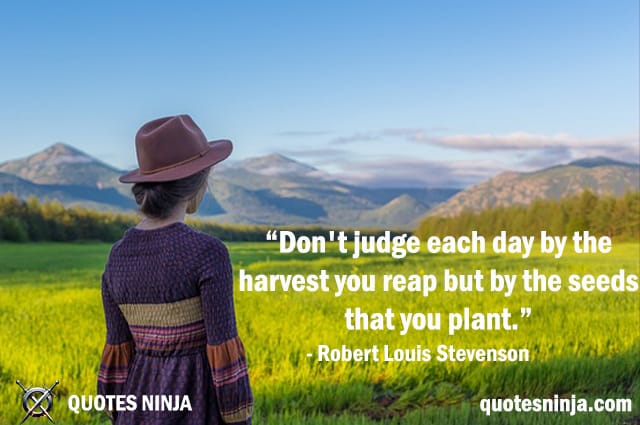
Deeper Meaning of Wisdom Quote
The quote, “Don’t judge each day by the harvest you reap but by the seeds that you plant.” is attributed to Robert Louis Stevenson.
This quote suggests that success and progress shouldn’t be measured solely by immediate results, but by the efforts and actions you take today that will eventually lead to growth and positive outcomes in the future. The “harvest” represents the results or rewards you gain from your efforts, while the “seeds” are the actions, choices, or investments you make now, which may take time to bear fruit. Essentially, it’s a reminder to focus on planting good intentions, habits, or work, rather than getting discouraged if you don’t see immediate rewards. Over time, those seeds will grow into something meaningful.
Here’s a story inspired by Wisdom Quote “Don’t judge each day by the harvest you reap but by the seeds that you plant.”
Wisdom Story: “The Farmer’s Patience“
In a small village nestled between green hills, there lived an old farmer named Eli. He had spent most of his life tending to his fields, growing crops for the village. As the years passed, he had become known not just for the abundance of his harvest, but also for his calm demeanor and wise words.
One evening, as Eli sat by the hearth with his young granddaughter, Lily, she asked, “Grandpa, why do you spend so much time planting seeds even when you don’t know if they will grow?”
Eli smiled and gently patted her hand. “Lily, let me tell you a story.”
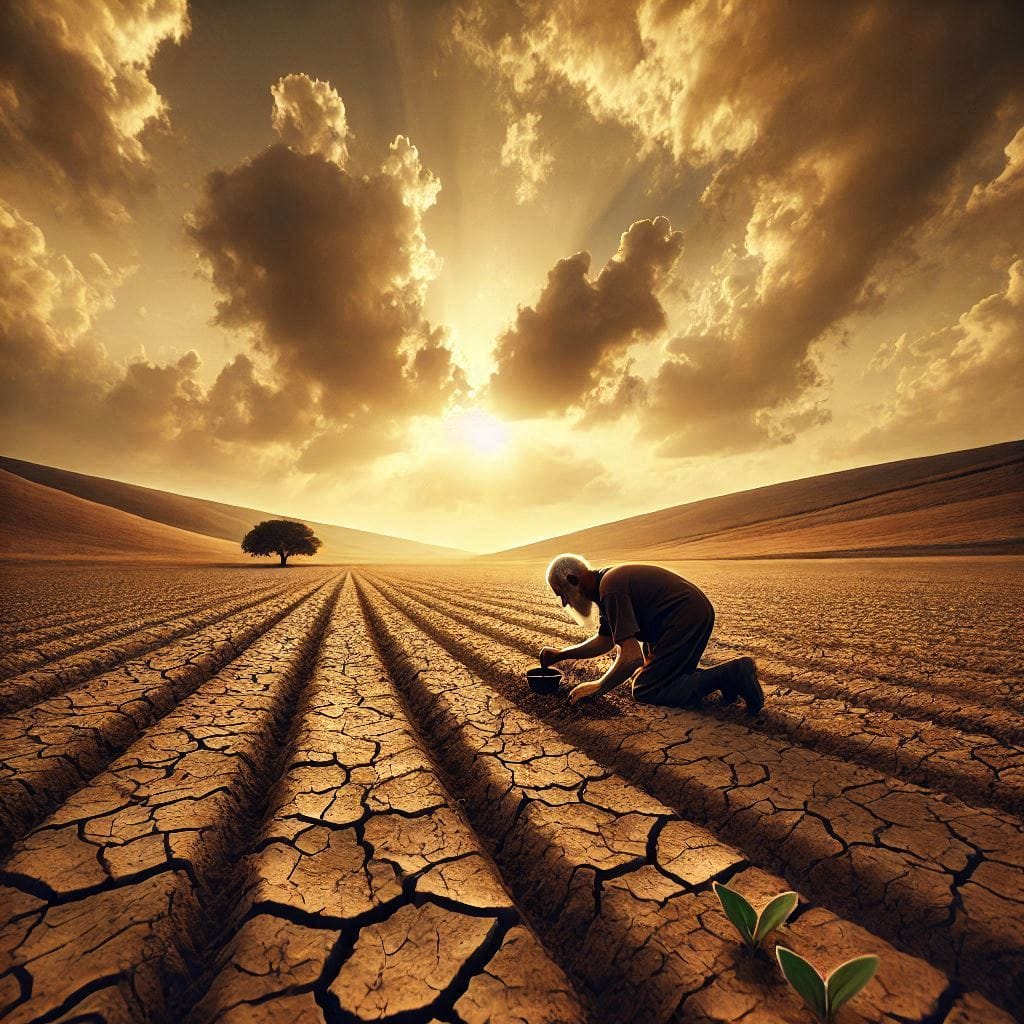
The Old Farmer in His Field:
Years ago, when Eli was younger, he had been like any other farmer, focused on getting the best possible harvest each year. He worked tirelessly, his thoughts consumed with how many crops he could yield and how quickly they would grow. One year, however, a terrible drought hit the region. The soil cracked under the sun’s relentless heat, and despite all his hard work, his crops withered away.
Eli was devastated. He had planted the best seeds, cared for them with patience, and yet, the harvest was nothing like he had hoped. He felt defeated, questioning whether his efforts had been in vain.
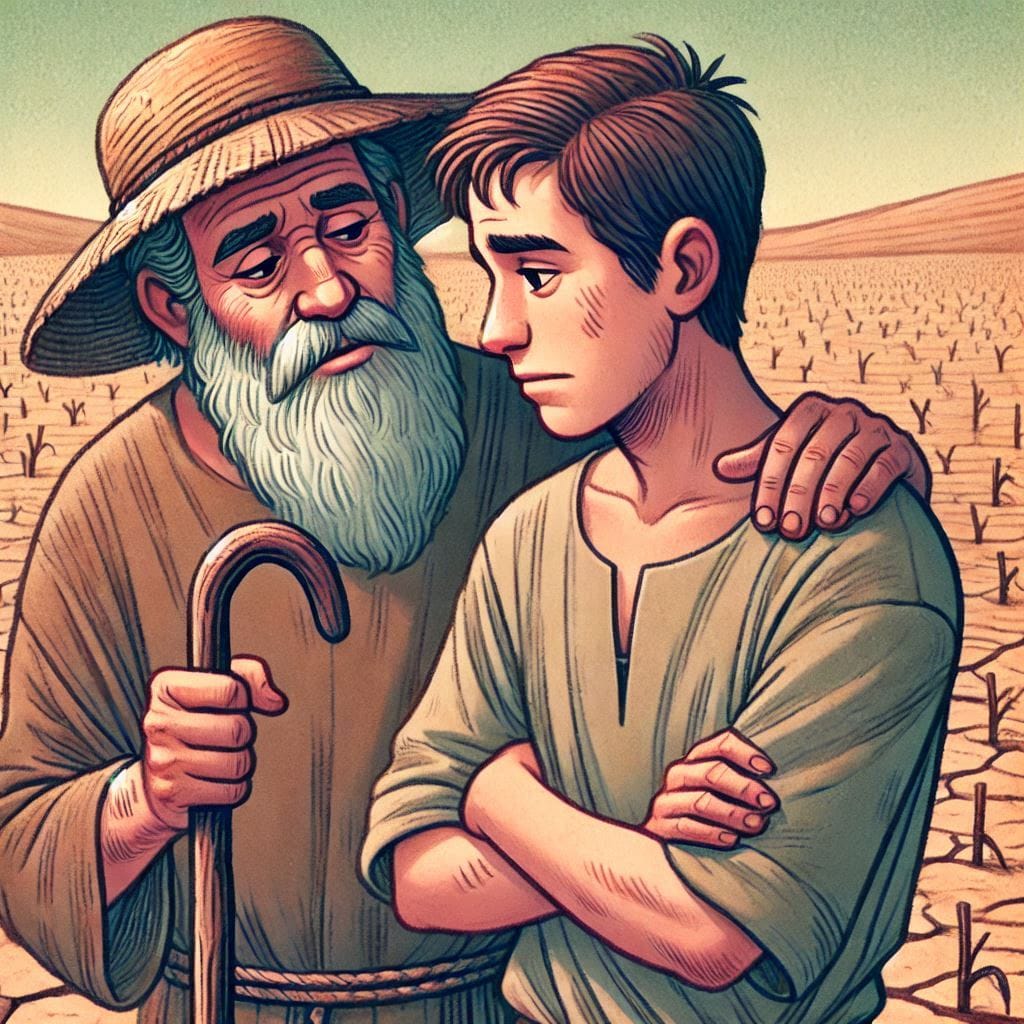
Eli and Jonah Talking by the Field:
But then, an older farmer, Jonah, came to visit him.
“Why do you look so troubled, Eli?” Jonah asked, noticing his friend’s sorrow.
“I’ve worked so hard, planted the best seeds, and yet, the harvest is nothing but dust. What’s the point of planting when you get nothing in return?” Eli replied, his voice filled with frustration.
Jonah chuckled softly, his weathered face creasing into a smile. “Eli, my friend, you’ve made a mistake. Don’t judge each day by the harvest, not by the seeds you’ve planted. You cannot control the rain, nor the sun, nor the winds. But you can control the seeds you choose to plant today. Even in times of hardship, those seeds are the foundation for something greater.”
Eli was puzzled. “What do you mean?”
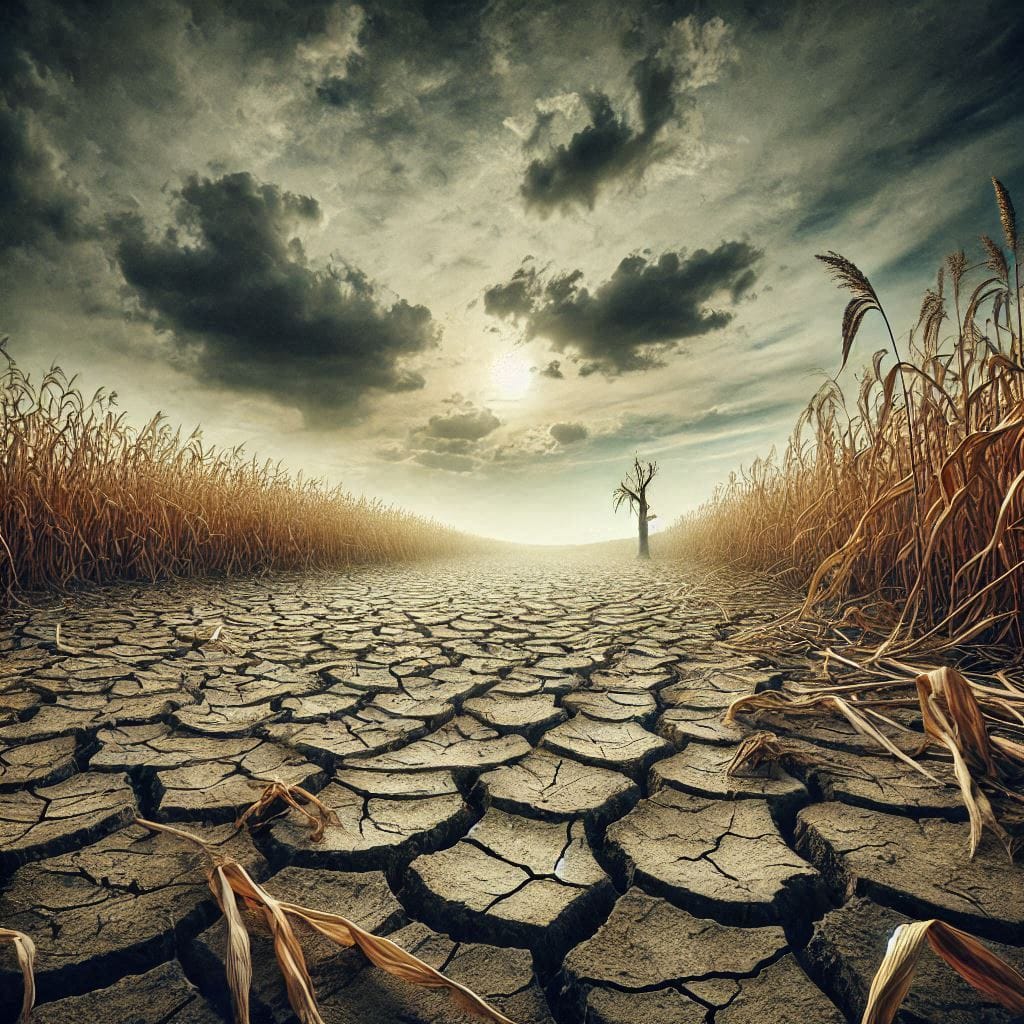
The Barren Field:
Jonah leaned on his staff, his eyes glinting with understanding. “You see, Eli, the harvest will come in time. Sometimes, the work we do today is not about immediate reward, but about what will grow in the future. Even in dry seasons, those seeds will shape the land for tomorrow. You may not see the results now, but if you keep planting, your efforts will pay off.”
It took time for Eli to truly grasp Jonah’s wisdom, but slowly, he started to understand. Each day, he focused less on the crops he couldn’t control, and more on planting seeds—literally and metaphorically. He tended to his soil, cared for his plants, and nurtured his land with patience. Even when storms came, or when the harvest seemed scarce, he kept planting.
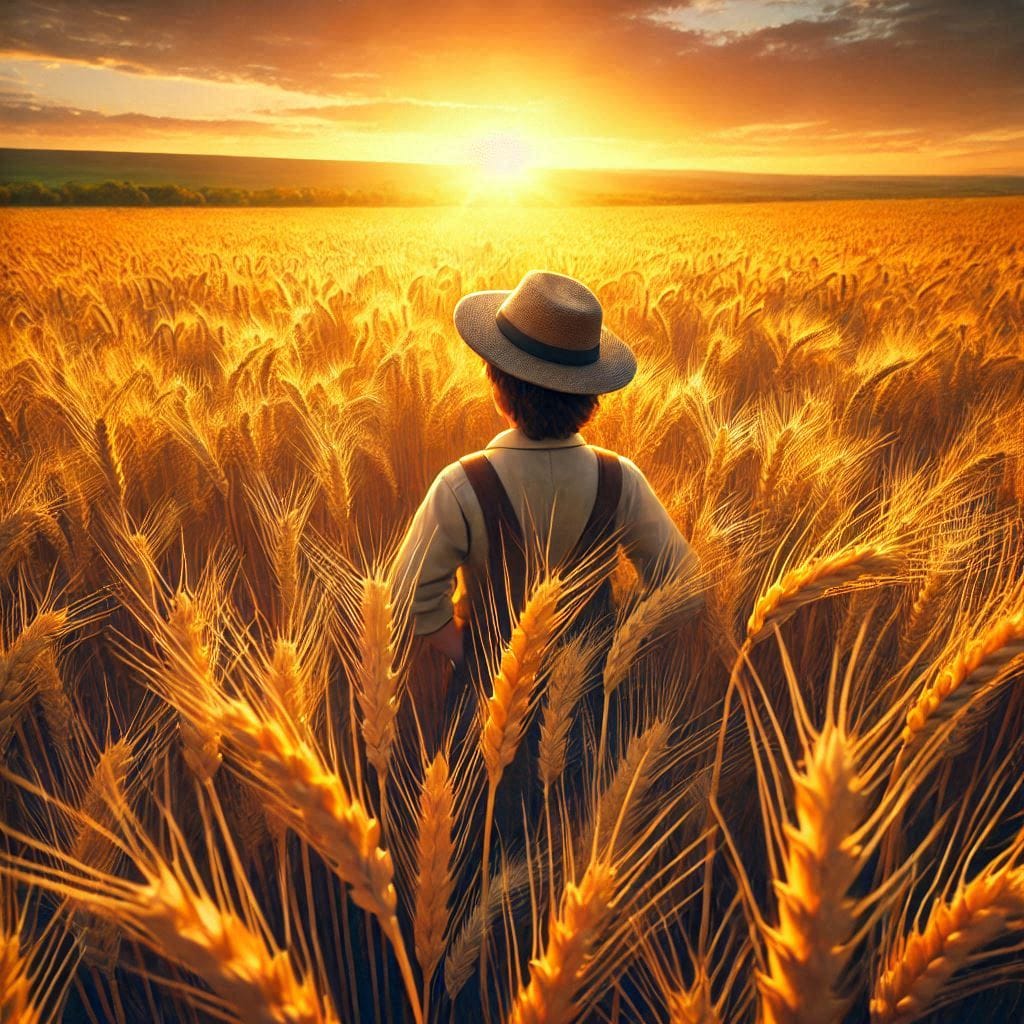
The Flourishing Field:
As the seasons turned, the drought ended, and the rains returned. The following year, Eli’s fields bloomed with vibrant crops, more abundant than he had ever imagined. But it wasn’t just the crops that had grown. His understanding had deepened.
One day, many years later, Eli stood at the edge of his now flourishing fields, gazing out over the land. Lily stood beside him, watching the golden wheat sway in the breeze.
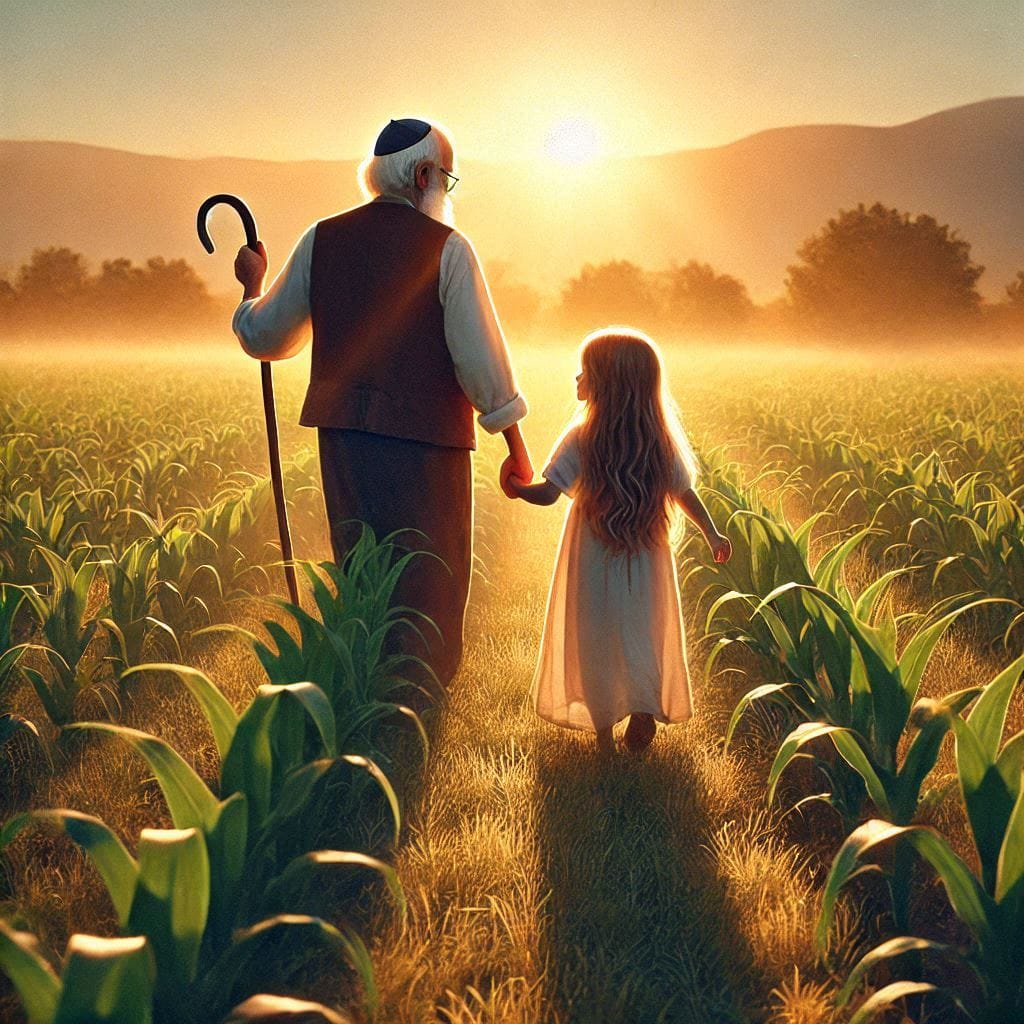
Grandfather and Granddaughter Walking Together:
“Grandpa,” she said, “now I understand. It’s not just about what we get right away, but about what we put in the ground today. We plant the seeds now, and in time, we’ll see what they become.”
Eli smiled at his granddaughter, proud not just of the fields before them, but of the lesson she had learned.
“That’s right, my dear. And remember, it’s not just the fields that need planting. In life, we plant seeds of kindness, effort, and hope. We may not always see the fruits of those seeds immediately, but in the end, they’ll grow into something beautiful.”
And with that, Eli and Lily continued their walk across the fields, knowing that each step they took was one more seed planted for the future.
Here is the end of Wisdom story and the quote “Don’t judge each day by the harvest you reap but by the seeds that you plant.”
To explore more on stories and dive into related ideas, be sure to check out the other posts where we cover all sort of stories related to quotes. Stay tuned for more…..
To explore more on quote topics, be sure to check out the other topics where we cover all categories of quotes. Stay tuned for more…..

